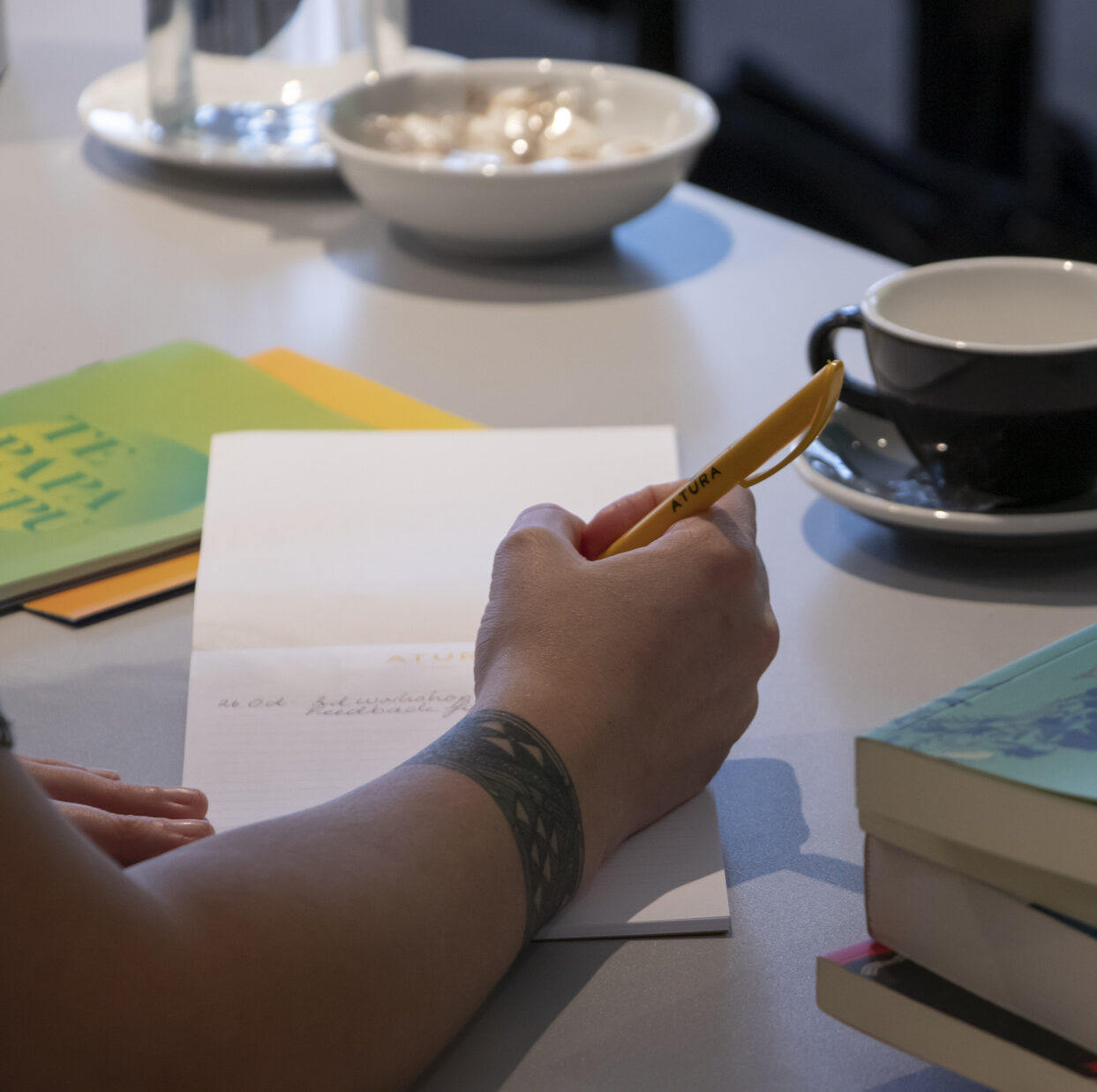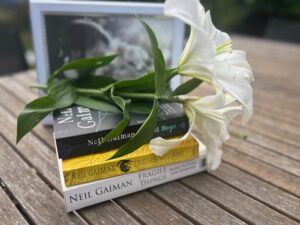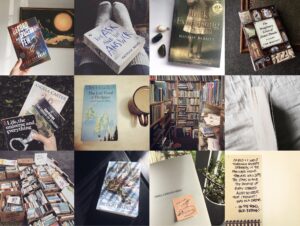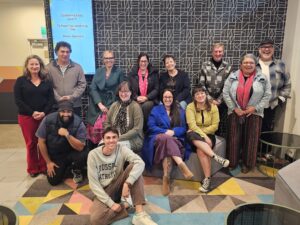Just before I went through the security gates at the airport, I remember turning to my husband.
“I can’t do this,” I told him, panic lacing its way through my voice.
“Yes you can. Off you go!” he said cheerfully. He’s ever optimistic, positive to a fault at times.
The fear and doubt clawed in my belly. “I really can’t, I don’t think.”
“Go on,” he said gently.
I took the first step through the security gates. Little did I know the amazing experience I was walking into, or have yet tasted the freedom found in what I was walking away from.
Te Papa Tupu was always a pipe dream. I’d kept up to date with the submissions of each round, noticing the writers moving through the programme and thinking ‘one day, surely, one day.’ I don’t know what it was specifically that made me feel that Te Papa Tupu was something too big for me. There were lots of little things, I suppose; I have no formal creative writing study, I’ve never written anything that’s been considered for publication before, I don’t have any ‘writer’ friends and the only writers I do know are far more eloquent, educated and engaging than me. All of these insecurities built into a barricade of self-doubt that almost stopped me getting on that damn plane. And man, I would have kicked myself if I didn’t.
Thankfully, the whānau at Huia threw to the curb any feelings of self-doubt within the first hours of the workshop.
“You’re all writers,” they told us reassuringly. “There’s no room for imposter syndrome here.”
Cool relief flooded through me. Thank God they thought so. To be honest, I was still getting there.
So, what is imposter syndrome exactly? A gnawing self-doubt? A persistent mental itch? A whisper telling you that you can’t do it, that you’re not enough? Absolutely.
My brain has always worked best with clear definitions, so I turned to Google, of course, to diagnose myself.
“Feeling like a fraud,” “feelings of shame and fear,” “a hot mess of harmfulness.” Tick, tick and tick. That swirling sensation, like hot sick, was very much in my stomach as I snuck into the elevator that would take me down to the conference room at Atura, not much helped by being five months hapū. As we sat together in the room waiting for the day to start, we baby writers all seemed to look around each other with the same darting anxiety in our eyes. It tasted like sandpaper in my mouth, impossible to wash away even with a bracing cup of tea.
Once the day started and we opened the workshop, those feelings of anxiety were quickly forgotten in the joy of talking about our writing. Here was a group of people who squirrelled themselves away to write made-up stories on their own instead of hanging out with friends. We were the people who were so deeply invested in our made-up characters and their wellbeing that we would weep with worry. At last, I had found my tribe.
It was comforting to hear echoes of my own worries in my fellow writer’s reflections. Yes, we’d all felt inadequate at some point, and yes, we were all so grateful to be under the protective wings of the Huia and Te Papa Tupu whānau as they led us into the next stage of our writing journeys.
I started to realise how persistent this self-doubt is within the creative mind. Surely, someone at some point in history had found a cure that I needed to go digging for. Since returning home, I’ve sought out the wisdom of our writing tūpuna for any advice I could glean.
It was a disheartening search at first. Ridding ourselves of this imposter syndrome is something that our older international writers never quite achieved. In high school, I was a huge Sylvia Plath devotee (like most overly-emotional adolescents). Her character within ‘The Bell Jar’ shared some words that slapped me in the face when I read it for the first time, and have slapped me again on every subsequent re-read.
“The trouble was,” Plath writes, “I had been inadequate all along, I simply hadn’t thought about it.”
!!!
Here was a wãhine who, within the book, was striving for a career, pushing herself away from her comfortable roots and forging a new identity for herself in the big city all while battling her mental health. And here she was telling me she was ‘inadequate.’ As I re-read this as a twenty-eight-year-old and māmā-to-be, I felt knocked by the devastation of it on the readership. As a kid, those words had resonated within me with some awful knowledge of my own self-perception. Now, as a teacher, it pained me to think of how those words and the insecurity they conjured could affect our rangatahi.
In my work as a kaiako I see every day the rot that can set in our young people when self-doubt comes knocking. I want to scream at these kids sometimes “You’re doing amazing!” “Why can’t you trust yourself?!” “Look at how you’re persevering against these odds!”
In a world of competing demands on our time, it’s hard to stand up that we’re good at something. It requires bravery to say ‘hey, I’ll be working on my book for the next two hours. No one bother me.’ It’s challenging to believe that we can achieve the difficult things; the book can be written, the bullies stood up to, the fight won. Every day, I try to cheer-lead my ākonga into trusting that all of those things can be achieved, no sweat. It’s time I started doing that for myself and there lies the beauty of writing. If I can write characters and worlds into existence, then maybe I can write greater self-confidence into existence too.
Our tuakana, Whiti Hereaka, wrote “It is sad indeed to be a creature who is unable to sing its own song.” As a kaiako I know there are so many people out there who have voices, stories and words bubbling away in their heads. Yet, we keep ourselves small, sad creatures hobbling around in the dark, too paralysed by fear and anxiety to share our talents. We need to get out, write wildly, and share our stories with the world. And I’m so proud to have finally joined this march. I’m finally out here saying ‘yeah I’m a writer’ and giving this writing thing a proper go.
To the whānau of Huia Publishers and MLT, thank you. You’ll make confident writers of us yet.





